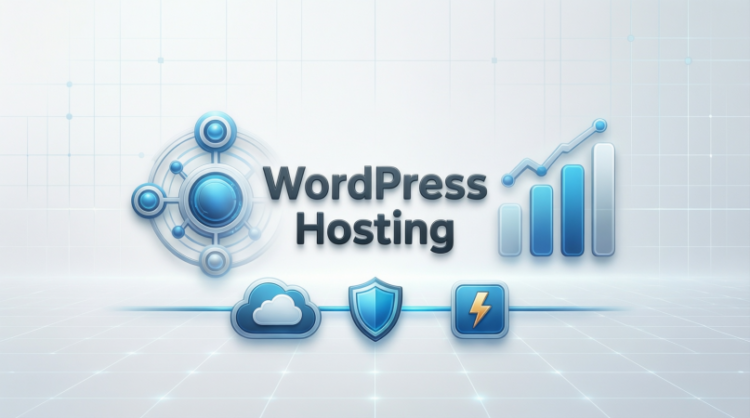
- Introduction: The Importance of Small Business Loans
- Types of Small Business Loans
- Benefits of Small Business Loans
- How to Qualify for a Small Business Loan
- Tips for Successful Small Business Loan Applications
- Conclusion
- FAQs
- What is the minimum credit score required to qualify for a small business loan?
- Can I use a small business loan to start a new business?
- How long does it take to get approved for a small business loan?
- Are there any alternatives to small business loans?
- What should I do if my loan application gets rejected?
Digimagaz.com – Starting and growing a small business requires financial resources, and one effective way to fuel its growth is through small business loans. Whether you’re just launching your venture or looking to expand an existing business, obtaining the necessary funds can make a significant difference. In this article, we will explore the benefits of small business loans and how they can contribute to the success and expansion of your business.
Introduction: The Importance of Small Business Loans
Small businesses play a vital role in driving economic growth and creating job opportunities. However, many entrepreneurs face challenges when it comes to financing their business initiatives. This is where small business loans become crucial. These loans provide entrepreneurs with the financial resources they need to start, sustain, and expand their businesses.
Types of Small Business Loans
There are various types of small business loans available, each catering to different needs and circumstances. Here are some common options:
Term Loans
Term loans are traditional loans provided by banks or online lenders. They involve borrowing a fixed amount of money, which is repaid over a specific period, usually with regular installments. Term loans are suitable for financing long-term business investments, such as purchasing equipment, expanding facilities, or launching new product lines.
Business Lines of Credit
A business line of credit functions similarly to a credit card. It provides a predetermined credit limit that you can draw from whenever needed. You only pay interest on the amount you borrow, making it a flexible option for managing cash flow fluctuations or covering unexpected expenses.
Equipment Financing
Equipment financing allows you to acquire the necessary machinery, technology, or vehicles for your business operations. With this type of loan, the equipment itself serves as collateral, reducing the lender’s risk and making it easier to secure financing.
SBA Loans
SBA (Small Business Administration) loans are partially guaranteed by the government, making them more accessible to small business owners. These loans come with favorable terms and lower interest rates. They can be used for a wide range of purposes, including working capital, real estate purchases, and debt refinancing.
Invoice Financing
Invoice financing, also known as accounts receivable financing, helps businesses bridge the gap between delivering a product or service and receiving payment. This type of loan allows you to borrow against outstanding invoices, providing immediate cash flow to cover operational expenses or invest in growth opportunities.
Merchant Cash Advances
Merchant cash advances are a financing option where lenders provide upfront capital in exchange for a portion of your future sales. This option is suitable for businesses with consistent credit card sales, such as retail stores or restaurants. However, it’s important to note that merchant cash advances often come with higher interest rates compared to other financing options.
Benefits of Small Business Loans
Small business loans offer numerous benefits that can empower entrepreneurs and drive business growth. Let’s explore some of the advantages:
Flexibility and Financial Stability
By securing a small business loan, you gain the flexibility to manage your finances more effectively. It allows you to cover operational costs, invest in new opportunities, or navigate unexpected challenges. Access to capital contributes to financial stability and helps you stay ahead in a competitive market.
Business Growth and Expansion
One of the primary reasons entrepreneurs seek small business loans is to fuel growth and expansion. Whether you want to open additional locations, invest in marketing campaigns, or develop new products or services, a loan can provide the necessary funds to turn your vision into reality.
Access to Working Capital
Working capital is essential for day-to-day operations, such as purchasing inventory, paying employees, or covering rent. Small business loans provide access to working capital, ensuring smooth business operations and minimizing cash flow gaps.
Opportunities for Investment
With the help of small business loans, you can seize opportunities for investment. Whether it’s acquiring a competitor, purchasing new equipment, or upgrading technology, having access to capital allows you to take calculated risks and drive your business forward.
Building Credit and Establishing Relationships
Successfully managing and repaying a small business loan can help build your business credit history. Establishing a positive credit profile opens doors to more favorable financing options in the future and strengthens your relationship with lenders.
How to Qualify for a Small Business Loan
Qualifying for a small business loan requires careful preparation and attention to various factors. Here are some essential steps to increase your chances of approval:
Prepare a Detailed Business Plan
A well-crafted business plan demonstrates your understanding of the market, your target audience, and your business’s financial projections. Lenders want to see that you have a clear vision and a solid strategy to generate revenue and repay the loan.
Maintain a Good Credit Score
Your credit score is an important factor in loan approval. Paying bills on time, reducing outstanding debts, and keeping your credit utilization low can help improve your credit score. Lenders view a good credit history as an indicator of your ability to manage financial obligations.
Provide Collateral or Personal Guarantees
Collateral provides security for lenders, reducing their risk in case of default. If you have valuable assets, such as property or equipment, you can use them as collateral to secure a loan. Personal guarantees, where you personally guarantee the loan repayment, may also be required, especially for new businesses or borrowers with limited credit history.
Demonstrate Financial Stability and Profitability
Lenders want to see that your business has a stable financial foundation and is generating consistent profits. Prepare financial statements, including balance sheets, income statements, and cash flow statements, to showcase your business’s financial health.
Research and Compare Lenders
Different lenders have varying eligibility criteria, interest rates, and loan terms. Research and compare multiple lenders to find the one that best suits your business’s needs. Consider factors such as interest rates, repayment terms, application requirements, and customer reviews.
Tips for Successful Small Business Loan Applications
To enhance your chances of securing a small business loan, consider the following tips:
Know Your Financing Needs
Clearly identify the purpose of the loan and determine the amount of funding required. Having a specific plan for how the funds will be used demonstrates your preparedness and increases your credibility with lenders.
Gather the Necessary Documentation
Lenders require various documents to assess your loan application. These may include personal and business tax returns, financial statements, bank statements, legal documents, and business licenses. Collect all the required documentation in advance to streamline the application process.
Polish Your Business Presentation
When meeting with potential lenders, present your business professionally and confidently. Prepare a compelling pitch that highlights your business’s unique selling points, competitive advantages, and growth potential. Clearly communicate how the loan will contribute to achieving your business goals.
Review the Loan Terms and Conditions
Carefully review the loan terms and conditions, including interest rates, repayment schedules, and any additional fees or charges. Understand the full cost of the loan and assess its affordability for your business. If any terms are unclear, don’t hesitate to seek clarification from the lender.
Seek Expert Advice if Needed
If you’re unfamiliar with the loan application process or need guidance, consider seeking advice from financial consultants or small business development centers. These professionals can help you navigate the complexities and provide valuable insights to improve your loan application.
Conclusion
Small business loans can be instrumental in fueling your business growth and achieving your entrepreneurial dreams. By securing the necessary funds, you gain the flexibility and resources to expand your operations, invest in new opportunities, and overcome financial challenges. Remember to approach the loan application process with careful preparation, research, and a clear understanding of your business’s financial needs.
FAQs
What is the minimum credit score required to qualify for a small business loan?
The minimum credit score required varies among lenders and loan types. Generally, a credit score above 650 is considered favorable for small business loan applications. However, lenders may also consider other factors, such as your business’s financial health, collateral, and industry.
Can I use a small business loan to start a new business?
Yes, you can use a small business loan to start a new business. However, lenders may require additional documentation, such as a detailed business plan, to assess the viability and potential of the new venture.
How long does it take to get approved for a small business loan?
The approval time for a small business loan can vary depending on the lender, the loan type, and the completeness of your application. It can range from a few days to several weeks. To expedite the process, ensure you have all the necessary documentation ready and respond promptly to any inquiries from the lender.
Are there any alternatives to small business loans?
Yes, there are alternative financing options available to small business owners. Some alternatives include grants, crowdfunding, angel investors, venture capital, and personal savings. Explore the various options to find the one that aligns best with your business needs and goals.
What should I do if my loan application gets rejected?
If your loan application gets rejected, don’t lose hope. Take the opportunity to review your application, seek feedback from the lender, and identify areas for improvement. You may need to work on strengthening your credit profile, revising your business plan, or exploring alternative financing options. Learn from the experience and use it as a stepping stone towards future success.
Read More :





